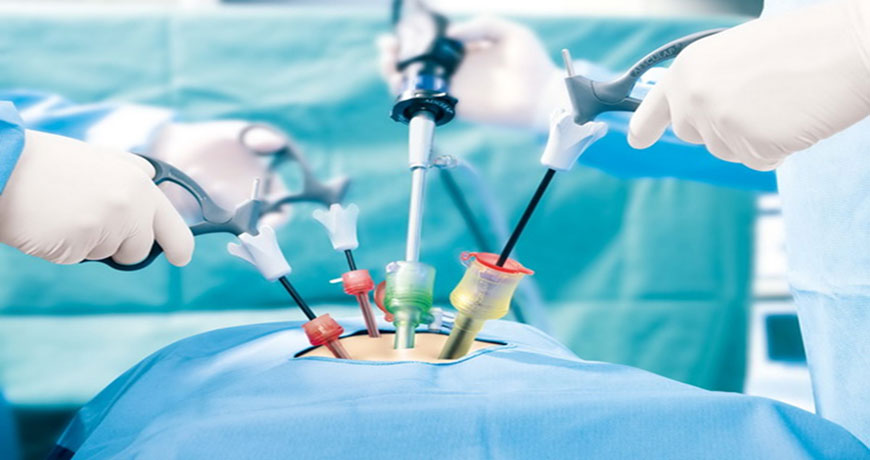General & Laparoscopic Surgery
General and laparoscopic surgeries are crucial components of surgical practice, each with its unique techniques and applications. Here’s an overview of both:
General Surgery
General surgery encompasses a wide range of surgical procedures that involve various body systems. General surgeons are trained to perform operations on the abdomen, digestive tract, thyroid, and other organs, as well as address trauma and other medical conditions.
Common Procedures:
- 1. Appendectomy: Removal of the appendix, often due to appendicitis.
- 2. Cholecystectomy: Removal of the gallbladder, typically due to gallstones.
- 3. Hernia Repair: Correction of hernias, which occur when organs push through muscle or tissue.
- 4. Bowel Resection: Removal of a portion of the intestine, often due to cancer, diverticulitis, or inflammatory bowel disease.
- 5. Thyroid Surgery: Procedures to remove all or part of the thyroid gland, usually for thyroid disease or cancer.
- 6. Breast Surgery: Including lumpectomy or mastectomy for breast cancer.
Laparoscopic Surgery
Laparoscopic surgery, also known as minimally invasive surgery, is a specialized technique that allows surgeons to perform operations through small incisions using a camera (laparoscope) and specialized instruments. This approach offers numerous advantages over traditional open surgery.
Advantages of Laparoscopic Surgery:
- 1. Smaller Incisions: Typically, incisions are less than an inch long, resulting in less trauma to the body.
- 2. Reduced Pain and Scarring: Patients often experience less postoperative pain and minimal scarring.
- 3. Shorter Recovery Time: Patients generally recover faster and can return to normal activities sooner compared to open surgery.
- 4. Decreased Hospital Stay: Many laparoscopic procedures can be done on an outpatient basis or require a shorter hospital stay.
- 5. Lower Risk of Infection: Smaller incisions reduce the risk of infection.
Common Laparoscopic Procedures:
- 1. Laparoscopic Cholecystectomy: Removal of the gallbladder using small incisions.
- 2. Laparoscopic Appendectomy: Removal of the appendix through minimal incisions.
- 3. Laparoscopic Hernia Repair: Repairing hernias using laparoscopic techniques.
- 4. Laparoscopic Bowel Resection: Removing a part of the intestine via small incisions.
- 5. Laparoscopic Fundoplication: A procedure to treat GERD by wrapping the top of the stomach around the esophagus.
Conclusion
Both general and laparoscopic surgeries play critical roles in treating a wide range of medical conditions. The choice between traditional open surgery and laparoscopic techniques typically depends on various factors, including the type of condition, the patient's health, and the surgeon's expertise. Many patients prefer laparoscopic surgery for its advantages, but not all conditions are suitable for this approach. Consulting with a qualified surgeon can help determine the best surgical option for each individual case.
General & Laparoscopic Surgery in Mercurry Hospital
Here’s what you will get from Mercurry Hospital regarding general and laparoscopic surgery:
- 1. Expert Surgical Team: Mercurry Hospital has a team of skilled and experienced general surgeons who specialize in both open and laparoscopic procedures. Their expertise can significantly impact patient outcomes and recovery times.
- 2. Comprehensive Surgical Services: The hospital offers a wide range of general and laparoscopic surgical services, including:
- • Laparoscopic Cholecystectomy: Removal of the gallbladder using minimally invasive techniques.
- • Laparoscopic Appendectomy: Removal of the appendix through small incisions.
- • Hernia Repairs: Both open and laparoscopic options.
- • Bowel Resections: For conditions like cancer, diverticulitis, or Crohn’s disease.
- • Thyroid and Parathyroid Surgery: Including minimally invasive techniques.
- • Weight Loss Surgery: Such as laparoscopic gastric bypass or sleeve gastrectomy.
- 3. Advanced Technology and Equipment: Mercurry Hospital is equipped with the latest surgical technology and instruments for laparoscopic procedures. This includes high-definition cameras and advanced laparoscopic tools, which can enhance precision and outcomes during surgery.
- 4. Minimally Invasive Approach: The hospital emphasizes minimally invasive techniques wherever possible, which can lead to:
- • Less postoperative pain and discomfort.
- • Shorter recovery times and hospital stays.
- • Reduced scarring and lower risk of complications.
- 5. Patient-Centered Care: Mercurry Hospital is committed to providing comprehensive care, focusing on patient comfort and satisfaction. This includes:
- • Detailed pre-operative consultations to discuss procedures, risks, and recovery.
- • Patient education on post-operative care and recovery expectations.
- • A supportive team that addresses patient concerns and questions throughout the surgical process.
- 6. Multidisciplinary Approach: For complex cases, the hospital utilizes a multidisciplinary approach, involving various specialists (e.g., dietitians, endocrinologists, oncologists) to ensure comprehensive care tailored to each patient's needs.
- 7. Emphasis on Safety and Quality: Mercurry Hospital adheres to strict safety protocols and quality standards in surgical care. This includes ensuring a sterile environment for procedures, monitoring patients closely during recovery, and following evidence-based practices to minimize risks.
- 8. Postoperative Support and Follow-Up: The hospital provides robust postoperative care, including follow-up appointments to monitor recovery and address any complications or concerns. They also offer support services, such as nutrition counseling and physical therapy, to facilitate healing and recovery.
- 9. Accreditations and Recognition: Mercurry Hospital holds accreditations from recognized healthcare organizations, signifying a commitment to maintaining high standards in surgical care, which can provide additional reassurance to patients.
- 10. Accessibility and Convenience: Mercurry Hospital offers convenient scheduling options for consultations and surgeries, along with a streamlined process for referrals and follow-ups, ensuring that patients have a smooth experience from start to finish.
These features combine to make Mercurry Hospital a strong choice for general and laparoscopic surgery, focusing on delivering safe, effective, and patient-centered care.



